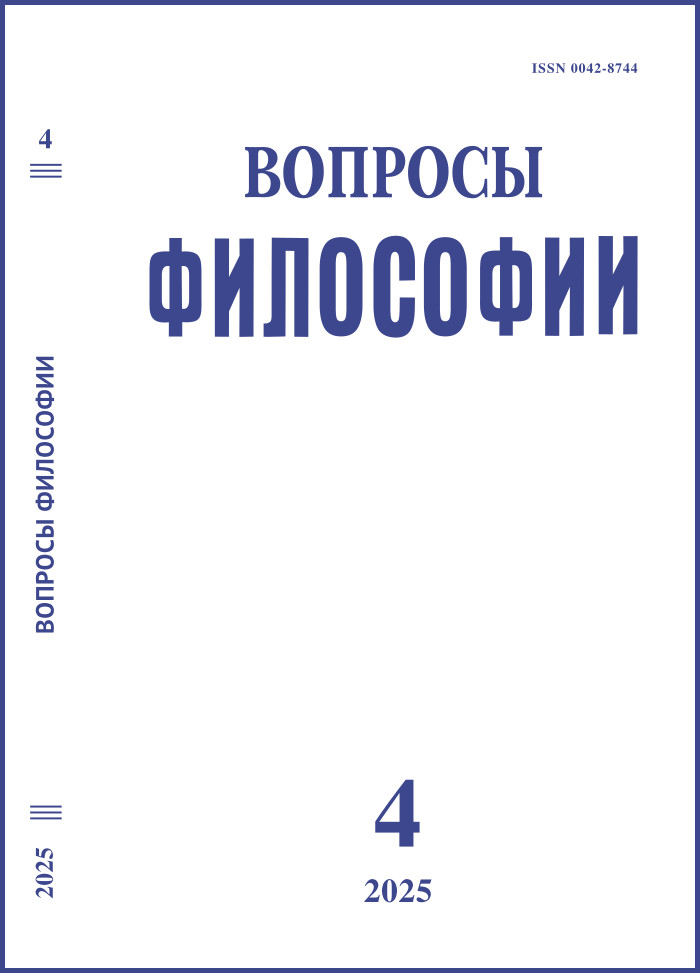Value in Consciousness: How Is It Phenomenologically Realized?
DOI:
https://doi.org/10.21146/0042-8744-2025-4-94-103Keywords:
emotions as a stream, intentional-objective act, sign of value, non-cognitivenessAbstract
The article denotes the understanding of value as an emotion with a positive/negative sign. This understanding is grounded by the understanding of emotion as a non-cognitive stream of senses and, using the phenomenology of Edmund Husserl, it rejects the basic understanding of value and emotion as cognitive. The cognitive understanding as supposing intentional-objective structure of consciousness does not demonstrate the specificity of value; in specifying intentional-objective structure of value cognitive understanding creates cognitive-emotional mixtures with an unclear mechanism – how valuable apperception, delight and emotion would produce value and understand it, involve it in value and demonstrate it. A possibility of non-emotional understanding of value is also unclear – how apperception would be valuable and would replace active delight and how delight or emotion would be in principle suppressed. Our understanding, on the contrary, does not suppose any intentional-objective structure of value, preliminary preventing the denoted uncertainty. An emotional stream is realized in spontaneous trials of senses as not forming a basis for acts, but pressing them to senses as they come in emotion. On this basis the gradual and positive/negative differences of value, its coincidence with estimation and its general specificitare understandable (unconnected with the content of its material).

